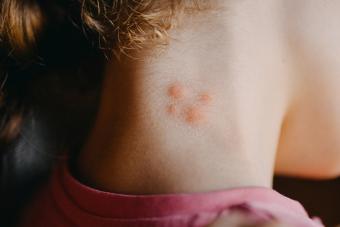
There are many causes of acne, but to cure them, you first need to understand this skin disorder. Acne can have a major impact on self-esteem and confidence. If you or a loved one suffer from acne, read on to understand the condition and treatment options that can help minimize its appearnace.
What Is Acne?
Most of the people who experience acne are between the ages of 12 and 25. However, adult onset acne is also quite common, so there are many individuals in their 30s and 40s who still experience acne outbreaks. Acne is usually found on the face, shoulders, back, and neck areas of the body, and is usually caused by oily skin. Unfortunately, many people who experience acne do all that they can to control their outbreaks to no avail. Education and practicing your dermatologist's sound advice on a regular basis is the best that you can do to conquer this skin disorder, which can sometimes borderline on devastating. Acne is very common, affecting about 80 of every 100 young people.
Why Does Oily Skin Cause Acne?
The sebaceous glands of people with acne are especially sensitive to normal blood levels of a hormone called testosterone, found naturally in both men and women. Testosterone, as well as other hormones such as DHEA-S and androgens, trigger the sebaceous glands to produce an excess of sebum. At the same time, the dead skin cells lining the openings of the hair follicles (the tubes that hold the hair) are not shed properly and clog up the follicles. These two effects combined cause a buildup of oil in the hair follicles, which causes blackheads and whiteheads to form.
The Truth About the Causes of Acne
Some people say that eating particular foods can cause your skin to become irritated with acne. You may hear that eating fatty or greasy foods or snacking on chocolate is harmful to your skin. However, this has never been proven, and there are plenty of people in the world who have flawless skin and still eat french fries.
Another fallacy about the acne is that blackheads are caused by dirt. It doesn't matter how clean you are, because blackheads get their dark coloring through skin pigment, not dirt.
A final myth is that acne is contagious. This is about as true as saying that you will catch someone's freckle if they give you a hug. Acne is a condition limited to that particular individual, and it cannot be "caught" by hanging around someone who is acne prone.
Furthering the Problems of Acne
While there isn't one external issue that causes acne, there are a few external issues that can make it worse! Don't ever pick, squeeze, or scratch at your pimples. This will only hinder the healing process and make it much more difficult. Scarring may also occur.
Certain forms of oral contraception can also trigger acne outbreaks, but being on birth control may also clear up acne for some others. It depends solely on the individual and their genetics and skin type. The menstrual cycle also contributes to this.
Lastly, an overload of stress in your life can cause your skin to be blemish prone. If you are having a difficult time at work or school, then you may find that you experience acne that is tougher to fight. Remember to always cleanse your skin regularly morning and night, no matter how tired or late you are. It is always important to remove the day's makeup, debris and dirt to maintain clear skin.
Prevention
Always use clean pillow cases when you sleep, and keep your hands off of your face as much as possible. The natural oils in your skin and hair can further encourage blemishes to form, so the more "hands off" you are, the better.
Many people recover from severe cases of acne with the help of a dermatologist. It is also a great idea to see a doctor if you are concerned about scarring or the fact that your skin condition is not improving well on its own. There are oral medications and prescription washes available for severe acne sufferers. You don't have to deal with acne forever; with the proper treatments, attention and regimens, you can enjoy clear, healthy skin.







